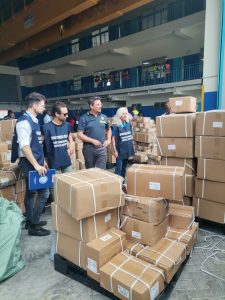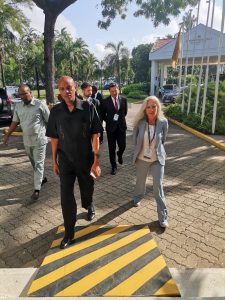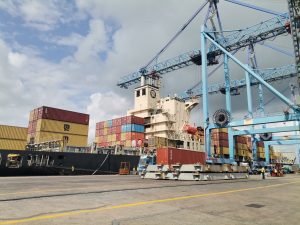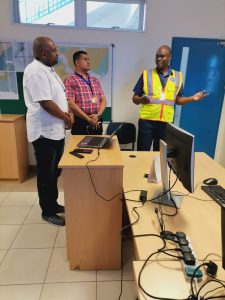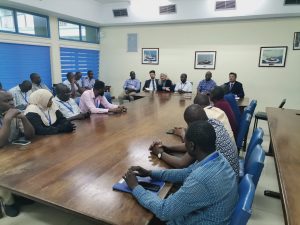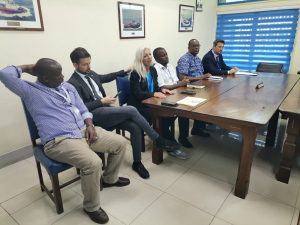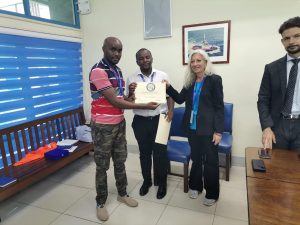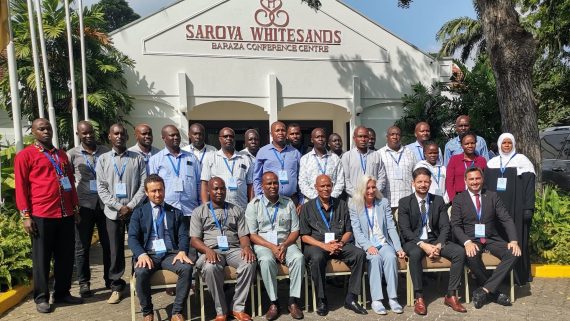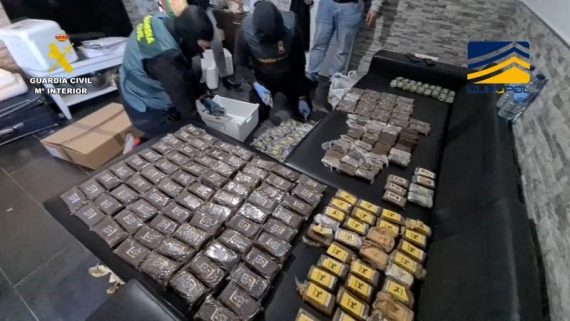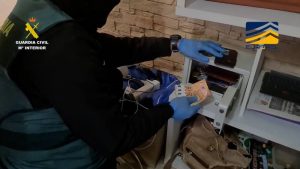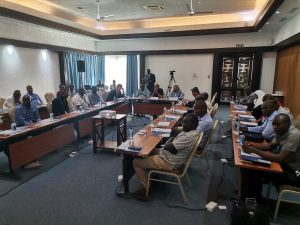 DCSA, in cooperation with the General Secretariat of Interpol Lyon, is developing the Southern Route project, involving some African countries – Kenya, Madagascar, Mauritius, Mozambique, South Africa, Tanzania and Uganda- in combating the trafficking in heroin coming from Afghanistan, crossing the so-called “Southern Route, where our country is one of the points of arrival in Europe of the opiate loads. This initiative, that belongs to the “Icarus“ Project – developed by DCSA in cooperation with the Department for Antidrug Policies of the Presidency of the Council of Ministers – is part of the antidrug police international cooperation and is aimed at studying and analyzing this phenomenon in order to develop joint operational countermeasures to combat such trafficking and drug-related phenomena in some transit regions.
DCSA, in cooperation with the General Secretariat of Interpol Lyon, is developing the Southern Route project, involving some African countries – Kenya, Madagascar, Mauritius, Mozambique, South Africa, Tanzania and Uganda- in combating the trafficking in heroin coming from Afghanistan, crossing the so-called “Southern Route, where our country is one of the points of arrival in Europe of the opiate loads. This initiative, that belongs to the “Icarus“ Project – developed by DCSA in cooperation with the Department for Antidrug Policies of the Presidency of the Council of Ministers – is part of the antidrug police international cooperation and is aimed at studying and analyzing this phenomenon in order to develop joint operational countermeasures to combat such trafficking and drug-related phenomena in some transit regions.


Last June, the second stage of the ‘executive’ part of the Southern Route Project took place in Kenya. A DCSA delegation participated in two mentoring days and two operational days, with the Kenyan police. The activities took place respectively at the Nairobi airport and at the commercial port in Mombasa, two strategic hubs of the Southern Route. These operational initiatives were attended by : the pro tempore Director of the I Service , Dir. Sup. P. di S. Dott. Emilio Russo; the Captain of the G. di F. Alberto Cirafici (Nairobi); the Director of the 1^ Division of the III Service, Primo Dirigente P. di S. Alessandra Ortenzi; the V.Q.A. P. di S. Andrea Carabei (Mombasa). DCSA officers were assisted by DCSA Law Enforcement Attachè at the Italian Embassy in Nairobi, V.Q. P. di S. Marco Azzaron and supported by DCSA staff. Col. Fabrizio Musci, commander of the Fiumicino Guardia di Finanza Group and Lt. Col. Danilo Persano, commander of the Gioia Tauro G. di F. Group participated – as experts in antidrug operational measures/ systems in airports and ports – in the mentoring days and operational controls carried out at the airport and port by the Kenyan authorities, in the presence of DCSA officers.
The Vice Chief of Police and Director of the Directorate of Criminal Investigations ( DCI ) of Kenya, Mohamed Ibrahim Amin Ali – who last April visited DCSA – participated in the opening of the works, which underlined the importance of the days of discussion and exchange also from an operational point of view.
 During the monitoring and operational days DCSA experts outlined the fundamental investigative coordination action carried out by the Central Directorate for Antidrug Services in the field of drug trafficking – one of the most long-standing and successful inter-agency initiatives within the national law enforcement agencies – pointing out that DCSA was the first national structure to second its own Liaison Officers, as ‘Experts’, to international crossroads of drug production, transit and illicit trafficking. Such L.O. primarily promote police cooperation against drug trafficking and carry out study, observation and liaison activities with the foreign counterparts.
During the monitoring and operational days DCSA experts outlined the fundamental investigative coordination action carried out by the Central Directorate for Antidrug Services in the field of drug trafficking – one of the most long-standing and successful inter-agency initiatives within the national law enforcement agencies – pointing out that DCSA was the first national structure to second its own Liaison Officers, as ‘Experts’, to international crossroads of drug production, transit and illicit trafficking. Such L.O. primarily promote police cooperation against drug trafficking and carry out study, observation and liaison activities with the foreign counterparts.
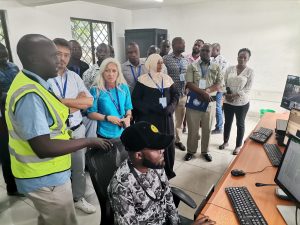
Moreover, DCSA experts hilighted that international police cooperation plays a decisive role and has become a necessary backbone of the security system of the states, due to the need to combat increasingly pervasive criminal phenomena, including drug trafficking. Furthermore, they illustrated fundamental aspects characterising DCSA : the operational coordination of the so-called special operations (undercover operations and controlled deliveries), as well as its role of national contact point for the requests (under Article 17 of the 1988 UN Convention) to board vessels suspected of carrying drugs in international waters. The experts from the Guardia di Finanza analysed in depth the operational aspects of the control and fight against drug trafficking through ports and airports (expertise/best practices) and the special operations: undercover activities and controlled deliveries. In addition to anti-drug investigation techniques, they illustrated the tools used in preventive control activities carried out at ports and airports, focusing on the best practices developed in the in-depth risk analysis of the so-called ‘suspect’ elements – relating to containers, passengers and luggage – carried out to identify targets(human and/or commercial) to be subjected to drug control and inspection. The different methods of concealment of drugs transported by air and sea were also illustrated.
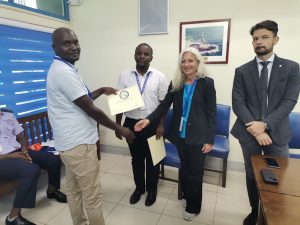
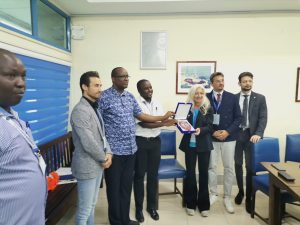
At the close of the works, participants expressed their satisfaction with the fruitful activities developed during the initiative, which opens up new perspectives for an ever closer anti-drug cooperation between the countries involved, which is necessary to deal with a global threat, going beyond borders and affecting everyone.


